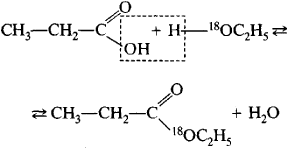
They have a much higher pressure rating than glass reactors. Metal Pressure reactors are typically used for high pressure reactions. High Pressure Reactor Metal pressure reactor However, with proper safety implementation provided by the manufacturer, the operator can perform most reactions in a safe manner.Ī Fisher-Porter tube or Fisher-Porter vessel is a glass pressure reactor used in the chemical laboratory. One of the drawbacks of a standard glass pressure reactor is the potential explosions due to hard-to-predict excessive internal pressure and lack of relief mechanism. These vessels are used in reactions included but are not limited to Hydrogenations, Polymerizations, Synthesis, Catalytic, petrochemical, crystallization, and so on. Glass pressure vessels can also be used in inert applications. These are all variables determined by the process and parameters of each individual reaction. A bottom valve on a glass vessel typically relates to a lower allowable working pressure. Integrated bottom valves can also impact the pressure ratings. The larger the diameter, the lower the allowable pressure. The ratings on glass vessels are directly related to the diameter of the vessel. Although the pressure ratings on these systems are lower than most metal pressure reactors, they are still an efficient set up for reaching responsible pressure limits. Glass Pressure reactors are typically used when an operator needs to observe how a reaction takes place. Standard glass Pressure Reactor Standard glass pressure reactor 12, closed vessel can prevent releasing toxic gas and explosions.6, short reaction time can save up to 92 percent electricity and 200 gallons of cooling water per refluxed reaction.1, less solvent and cleaner reaction profile result in less waste.If a pressure reactor is engineered properly, it can meet 4 out of 12 green chemistry principles Later experiments show some of these early reports to be artifacts and rate enhancement is strictly due to thermal effects. The microwave effect is a controversial topic. E.g., if a Suzuki Coupling takes 8 hours at 80☌, it only takes 8 minutes at 140☌ in a microwave synthesizer. The above benefits from a pressure reactor has been shown in microwave chemistry. Pressure generally enables faster reactions with cleaner reaction profiles. When the desired reaction is accelerated, competing reactions are minimized. However, pressure can speed up the desired reaction and only impacts decomposition when it involves the release of a gas or a reaction with a gas in the vessel.


Increase in temperature can speed up the desired reaction, but also speed up the decomposition of reagents and starting materials. Secondly, the pressure can reduce the reaction volume, including the liquid phase, and in turn increase concentration and collision frequency, and accelerate a reaction. Firstly, it can conduct a reaction above the boiling point of a solvent. A pressure reactor can offer several advantages over the conventional round-bottom flask.


 0 kommentar(er)
0 kommentar(er)
